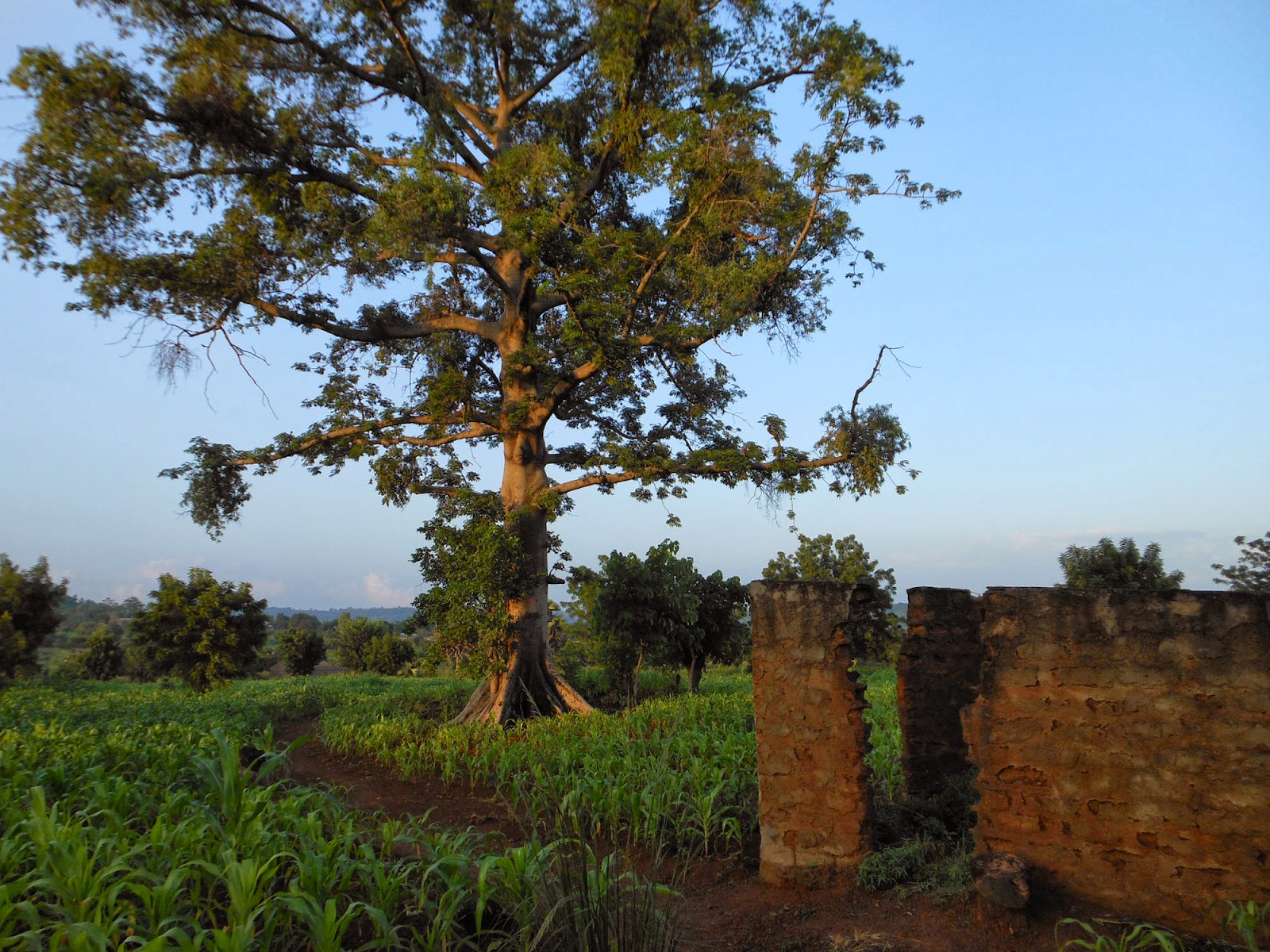In Togo, when exchanging greetings, it’s customary to ask a
series of questions about your respective lives. A typical example would be,
“How are you?” or “How’d you sleep?” chased by at least two of the following:
“And your health?”, “And the work?”, “How’s the family?”, etc. Unless it’s
someone you know well, you always say everything’s fine. To speak candidly with
acquaintances can lead to awkward moments; I once described my health as
terrible during an exchange and several locals erupted in laughter believing it
was a joke. For the past few months however, another question has entered
salutations to which I cannot lie: “And the heat?” or “Et le chaleur?” in
French. From late February to May the cooling rains and wind stop in Northern
Togo, leading to a season of pronounced dry heat. Most plants die. Life seeks
shade to recover from even short times in the sun. Water can become scarce.
And, like a bothersome uncle paying an annual visit, le chaleur becomes part of
most personal exchanges. Tandjoare quickly learned my feelings regarding it as
well, with my sweat - soaked disdain spilling over the asker each time.
By chaleur’s second
week, life had noticeably changed: my sweat glands, overactive in even the
mildest Montana summers, began an unceasing deluge. Morning to night, inside or
out, resting or moving, nothing mattered as far as the soaring temperature and
my skin were concerned. Simple activities I’d enjoyed before, such as writing, reading,
or yoga, became as much chores as washing my laundry. When you’re perpetually
sticky and smell like a gym, simply being awake is unappealing. That fact is
especially problematic considering how difficult it is to sleep: after a week
of waking up at two or three in the morning on saturated sheets, I moved outside
to catch our miniscule breezes. I now attribute this move with my continued
sanity, as the local work situation offered little comfort.
During most of the
year, people in rural Togo are busy with what’s necessary to survive. From
managing their farms and households to keeping active in the community, they've
an overabundance of work. As such, it can be difficult to hold meetings,
encourage behavior change, and demonstrate new practices. Chaleur seems to
offer a golden opportunity then, a time when people are at least free of the
farm and its requisite tasks. Unfortunately, with the heat, everyone’s energy
and motivation withers. My ambition was no different soon into the season. When
my farming group’s attendance first plummeted, I was disappointed and hoped to
reenergize the members. After several attempts and sweltering rides to our
meeting spot, I’ve put our sessions on indefinite hiatus. It's hard to fault
people with such full schedules for wanting to rest when they can, especially when
their freest times are spent in an oven. I’ve yet to meet any local whom, after
hearing my feelings about the heat, didn't agree.
Walking through the
village, our land is barren, broken, yellow - brown. The dried remnants of brush
crunch with each footstep, as foraging livestock scratch and scour the dirt for
anything edible. Insects, so omnipresent before, are largely dead or gone, a rare
blessing. People move slower and less intently, nowhere to go save the markets
and alcohol stands with other idle farmers. Standing on a rocky hillside, my
view is of a dead land, once fecund, awaiting its revival. Clouds are on the
horizon, carrying a nascent hope. Chaleur is only a season after all, and each
does give way to another.






